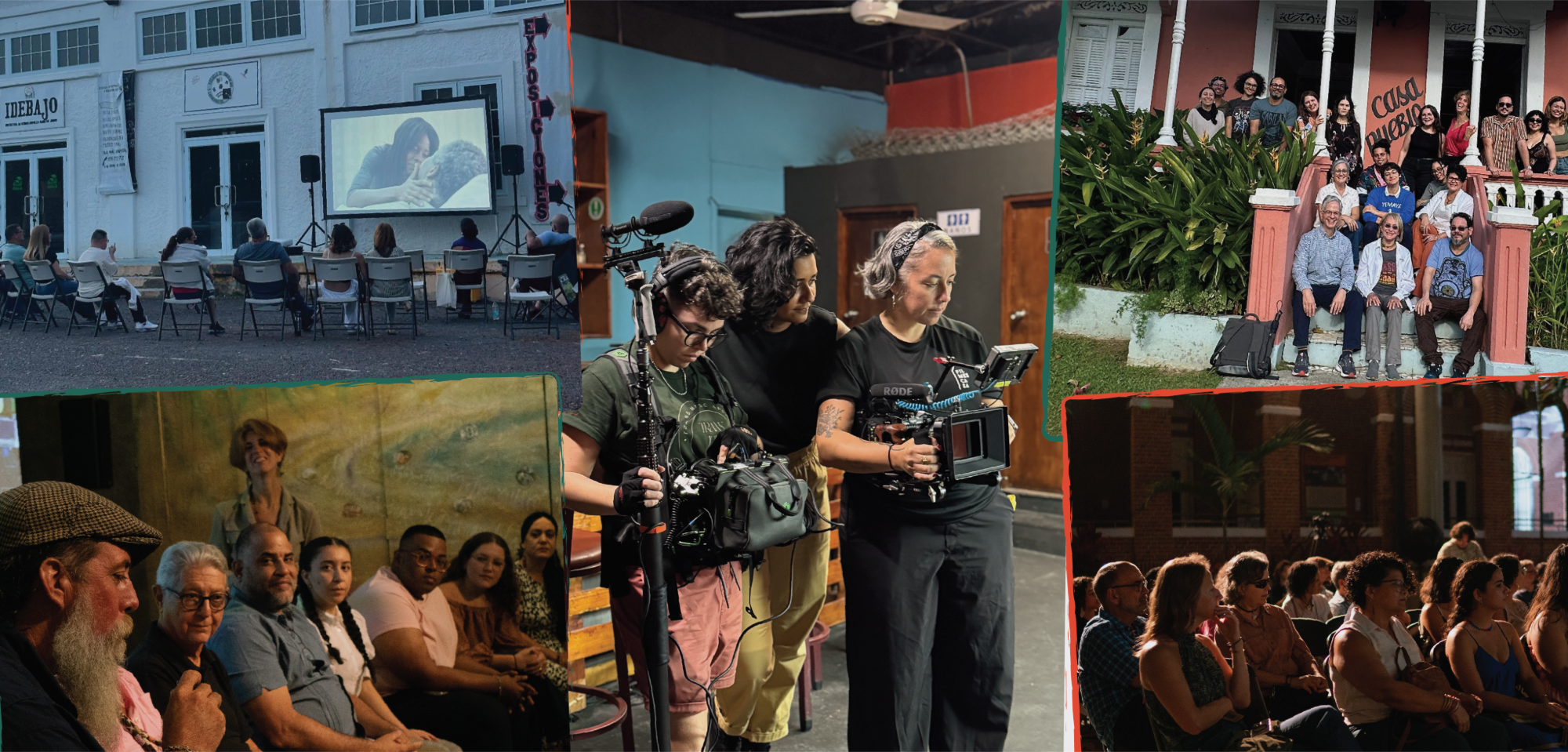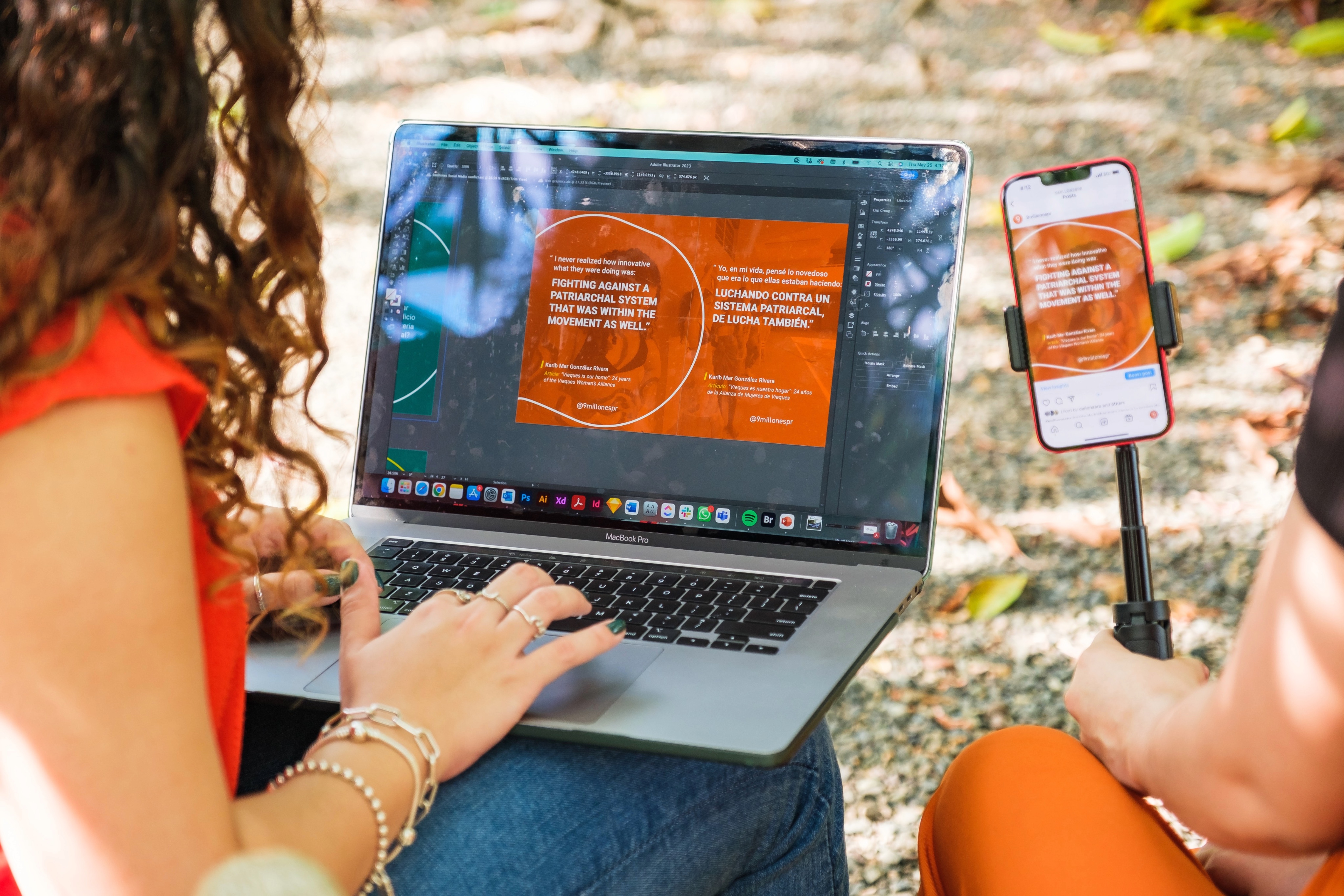.png)
Culebra's Fishing Community Bets on Oyster Farming
This project funded by NOAA is in an investigative phase with sights to eventually add this nutritious food to the fishing village's offerings.
Culebra, Puerto Rico – In Culebra's crystal-clear waters, a pilot project seeks to innovate how the island municipality is producing seafood. On the only oyster farms in Puerto Rico fishermen are cultivating two native species–the mangrove oyster and the Atlantic pearl oyster–to strengthen food security and offer economic opportunities to the fishing community.
The underwater farms, located in Punta Soldado and Cayo Pirata on the south of the island, were established in 2024. The project is led by Mujeres de Islas in collaboration with the Culebra Fishing Association. The National Oceanic and Atmospheric Administration (NOAA) is funding its research phase.
The idea originated as a commitment to complement traditional fishing with aquaculture. Nicolás Gómez Andújar, project co-leader and son of a Culebra fisherman, emphasized in an interview with 9 Millones that the initiative offers an alternative to the lack of nutritious food and the dependence on imports that Culebra faces, where food vulnerability usually increases during and after events such as hurricanes and the COVID-19 pandemic.
However, the farms also provide benefits to nearby ecosystems. Megan Considine, also a project co-leader, highlighted that, as filter feeders, oysters improve water quality.
"We are the only oyster farm in Puerto Rico, but a fishing industry exists in Boquerón [and in] Loíza, where they harvest wild oysters. All restaurants currently in Puerto Rico mostly buy and import their oysters from the United States," Considine explained regarding the oyster import trends in the archipelago.
%203.01.23%20p.%20m..png)
To optimize the cultivation process, project participants identified optimal sites and times of the year for collecting oyster seeds or spats. This process increases the project's economic viability and effectiveness.
According to the participants interviewed by 9 Millones, community participation has been critical to developing the farms: "We started building the project from scratch, from putting in the screws, making the rope, designing it, arranging the cage, starting to collect, everything from scratch. I love it, and I see potential,” recounted field technician and captain René Fernández. “This is free; it's about growing it and moving it forward," he added.
Since the project began, 16 young people interested in fishing have graduated from diving classes, a necessary skill for cultivation. The industry represents one of the few employment opportunities available in Culebra.
"I only saw it as something unattainable, but since I started, it became much feasible and then this summer they gave me the opportunity to take the regular and advanced diving classes, completely free," Jaime Reyes told 9 Millones. The student joined the project as a field technician after seeing a flyer promoting the position.
Gómez Andújar shared that it’s particularly personal: "It means being able to practice what I have studied, something I am passionate about, something I hold very close to my heart because we are talking about my family, who has been dedicated to commercial fishing since I was a child."
%205.37.28%20p.%20m..png)
For the coming year, the project faces several challenges, including: increasing its production, implementing depuration tanks, and obtaining commercial permits. Even so, the volunteers feel hopeful about the project.
Beyond exploring a niche in the seafood industry, it offers the possibility of a better life for Culebrenses, especially for the youth who long to remain on the island they call home.
For the project co-leader, it is the community’s way of "adapting to all the challenges we face as a country, as a society, as a world; looking at how we continue to live with dignity."
%202.56.08%20p.%20m..png)
In this story, we used Gemini to convert a video script into a text article format. When using this tool, we verified the data, a person corrected the text, and we ensured it met our ethical and accuracy standards. This allowed us to provide content on different platforms. Our team then integrated quotes from people we interviewed, but whose voices were not used in the video.
How do you feel about us using AI? Let us know here!




